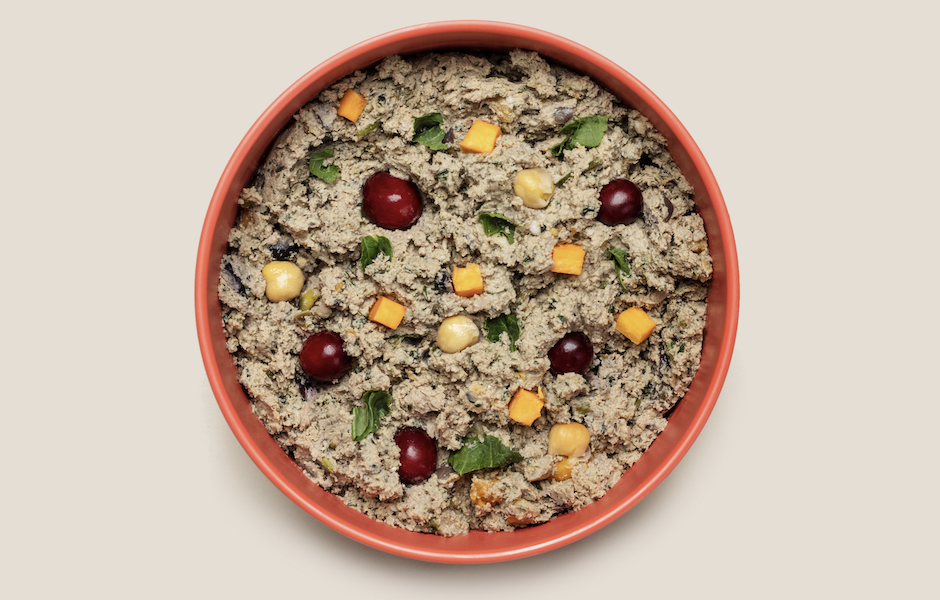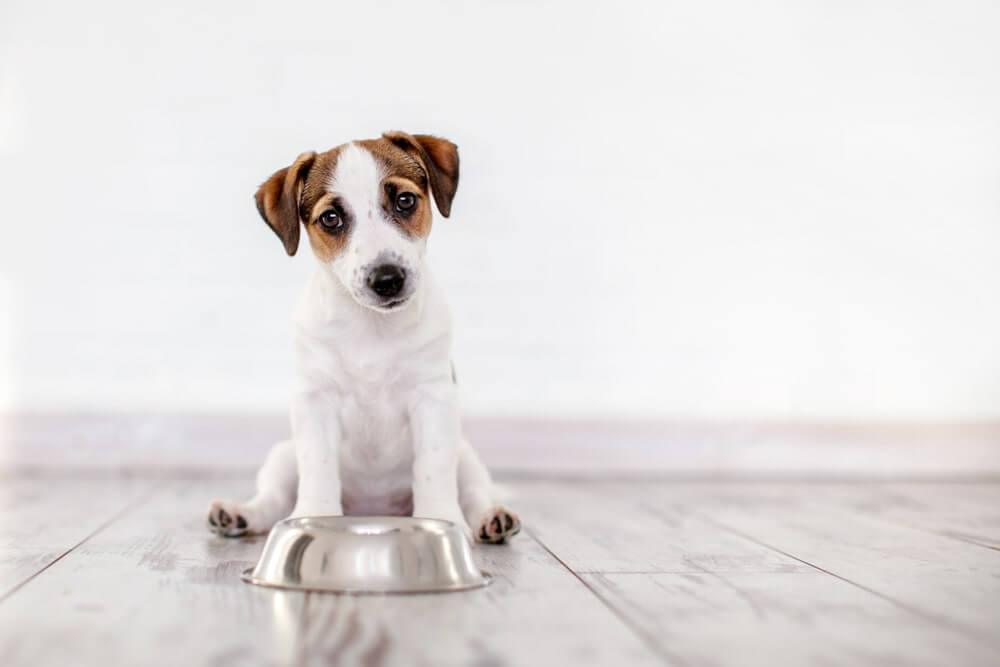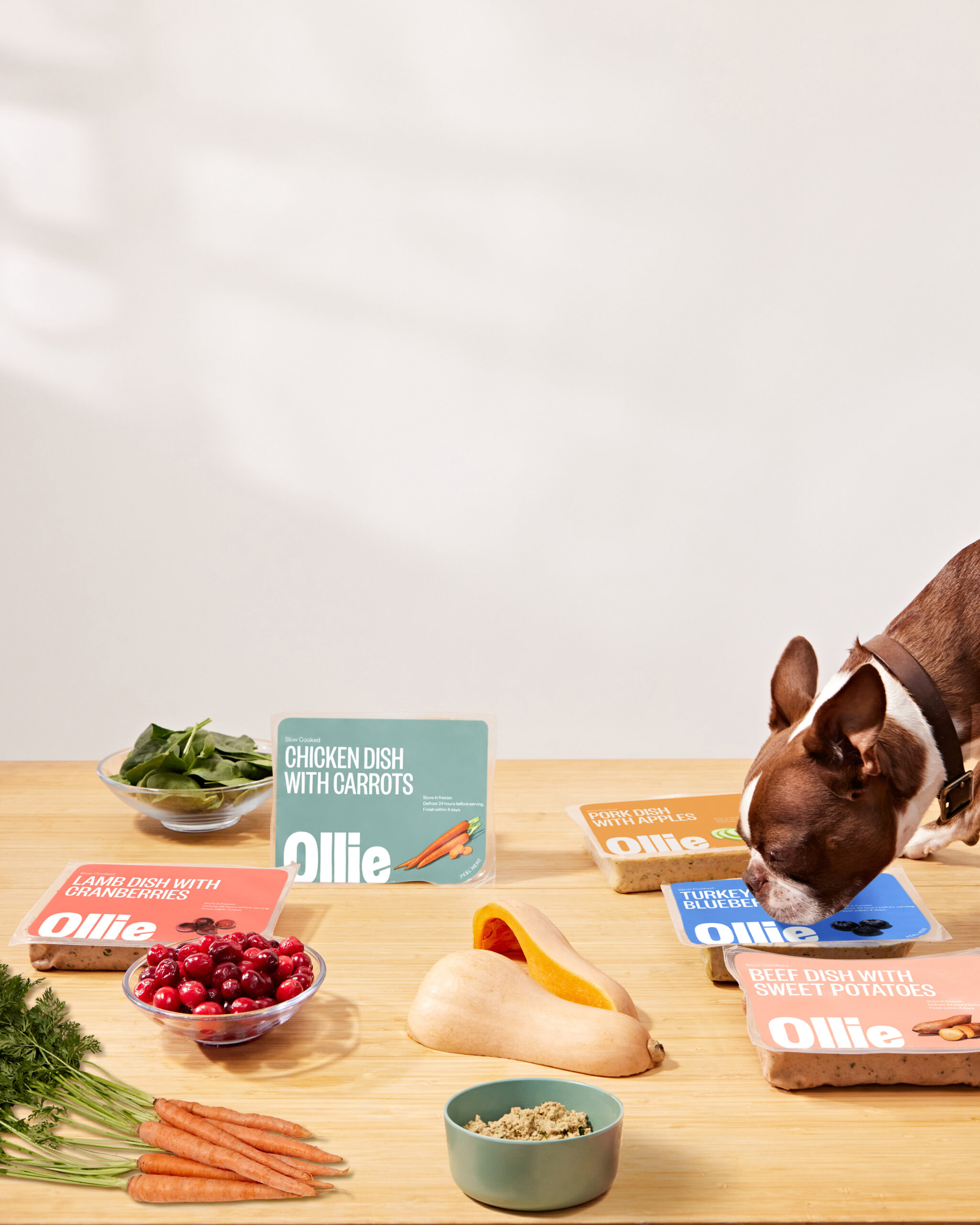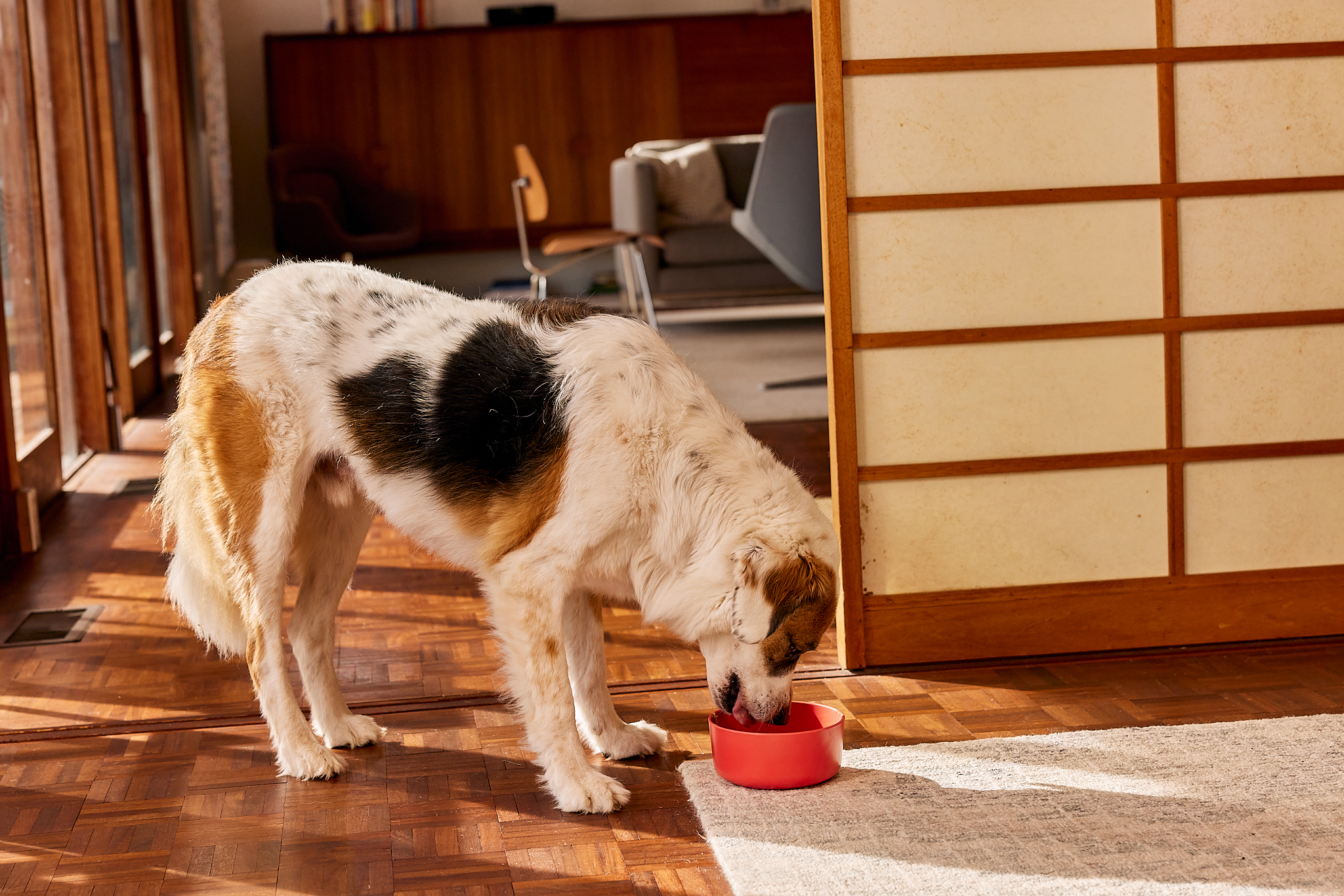Hey Ollie blog readers! We’re offering you an exclusive 60% OFF your starter box! Try now!
For most dogs, mealtime is their favorite part of the day. Therefore, it can be concerning for pet owners when their dog’s not eating, or his appetite seems to have decreased. Luckily, the most common reasons are easily fixable—especially if your dog is not eating but seems fine otherwise. Here’s why your pup may have lost his appetite and how to get your dog to start eating again.
Why Is My Dog Not Eating?
There are a variety of reasons that your dog might not be eating but below are a few of the most common reasons:
1. Stress
Stress is a common reason your dog might not eat. Changes like a new family member, a noisy environment, or a disrupted routine can throw your dog off. Dogs are able to go a few days without food before it’s problematic as long as they are drinking enough water, so just hang in there and offer some extra love and reassurance.
If your dog isn’t eating his food but acting normal, try keeping their schedule consistent and offering high-value foods like boiled chicken or plain fish. If stress persists, check out our guide to de-stressing dogs for helpful tips.
2. Separation Anxiety
Separation anxiety can prevent your dog from eating. Some dogs won’t eat unless their “pack” is present. If you’re away during mealtimes, your dog might wait for everyone to be home. Separation anxiety can also strike when your dog is left alone. Play calming music or leave the TV on to ease their anxiety.
3. Overfeeding
It’s easy to feed your dog something “bad” for them without much thought. A piece of cheese here, a few too many treats there, a nugget off the kids plate, you know how it goes. If you consistently give out treats and snacks, and your dog is not hungry at mealtime, you may be overindulging your dog, resulting in a loss of appetite.
Alternatively, you may be accidentally training your dog to hold out for treats instead of eating their regular meals. If you notice your dog is gaining weight, then this is usually an indicator that they are being overfed.
Consider reading our guide on how much you should be feeding your dog or our guide on how often you feed a puppy for some general guidelines. You can also chat with your vet to make a better meal plan for your pup – one that includes the good stuff AND the tasty treats!
4. Bad Food
Remember, our little friends have a strong sense of smell, much stronger than ours. If your dog is not eating, it may be a sign that the food is expired or has gone bad.
If you think this may be the case, consider providing a fresh bowl or pouch of food to see if it makes a difference. Make sure you check expiration dates and throw away any food that’s expired; this will potentially save you from having to clean up doggy diarrhea or vomit, too!
If giving your dog fresh food doesn’t help, wait a day or so, then take a visit to the local vet to get your pet checked. Make a note of any other symptoms that will help your vet get to the root of the problem.


Healthier ingredients,
tailored recipes, delivered
Get 50% off your first box of Ollie’s fresh
delivered meals today!
5. Illness
If your dog is not eating but acting normal, illness might still be a concern. Watch for other signs like vomiting, diarrhea, or lethargy. Consult your vet if their appetite doesn’t return within 24 hours to rule out issues like infections, liver disease, or kidney problems.
6. Dental Issues
Mouth pain from a toothache or sore can make eating difficult. If your dog starts eating but stops quickly, discomfort could be to blame. Schedule a vet visit to address dental problems and consider softer foods during recovery. Keep up with brushing and good oral hygiene to prevent dental issues in the future.
7. Recent Vaccinations
Temporary appetite loss can be a side effect of vaccines. Ensure your dog stays hydrated and give them time—this usually resolves within a day or two.
8. Dirty Bowls
When was the last time you washed your dog’s bowl? A dirty dish can deter even the hungriest pup. Clean their bowls daily to keep bacteria at bay and meals inviting.
9. Travel
New environments can overstimulate or stress your dog, affecting their appetite. Be patient, offer treats, and let your pup adjust. They’ll likely return to eating normally once they settle.
10. Moving
Relocating can be confusing for dogs. If your puppy isn’t eating much but acting normal, ensure they have access to fresh water and stick to a routine. They’ll adapt as they settle into their new home.
If your dog’s appetite doesn’t improve or you’re unsure why your dog isn’t eating his food, consult your vet to rule out serious issues. Want to make mealtime more enticing? Learn more about Ollie’s fresh, human-grade food designed for picky eaters!
Tagged As:

The nutrition your dog needs,
the food they want.

Enjoying our articles? Subscribe our Newsletters and get new articles directly to your inbox
You might also like
4 June 2025
7 MINS READ
Feed Their Future: Why Human-Grade Food Matters for Puppies
Among the many decisions you’ll make as a new pet parent, choosing the right food for your growing puppy is one of the most important. The quality of your puppy’s diet can impact their developme…
by Ollie Pets
4 June 2025
6 MINS READ
How Does Fresh Dog Food Compare to Homemade?
As pet parents become more conscious about what goes into their dog’s food bowl, many are considering alternatives to traditional kibble. Two increasingly popular options are fresh dog food and ho…
by Ollie Pets
4 June 2025
5 MINS READ
How Can Fresh Dog Food Help with Weight Management?
Maintaining a healthy weight is one of the most important aspects of your dog’s overall health and longevity. Being overweight or underweight can result in health complications and conditions that…







